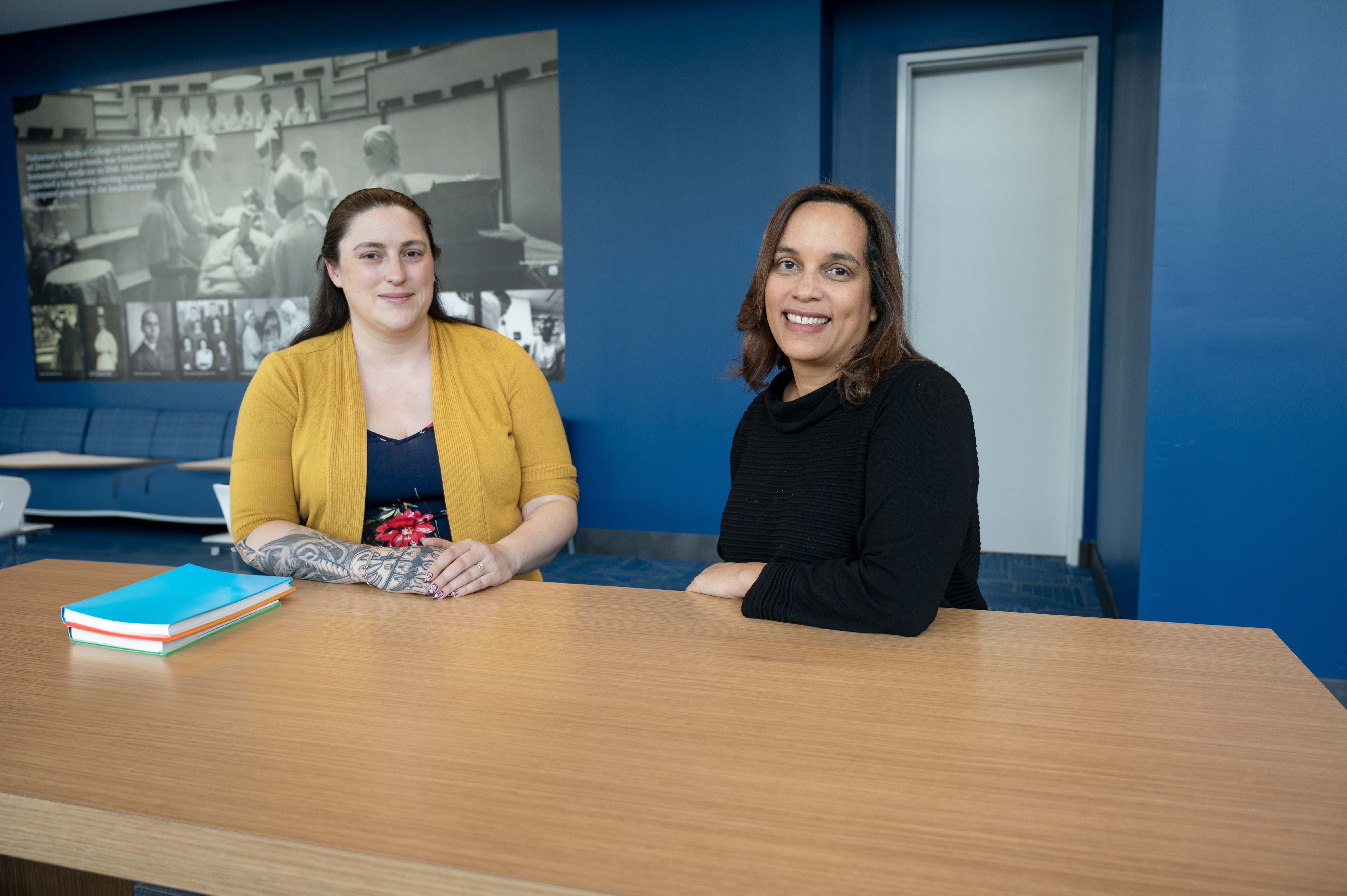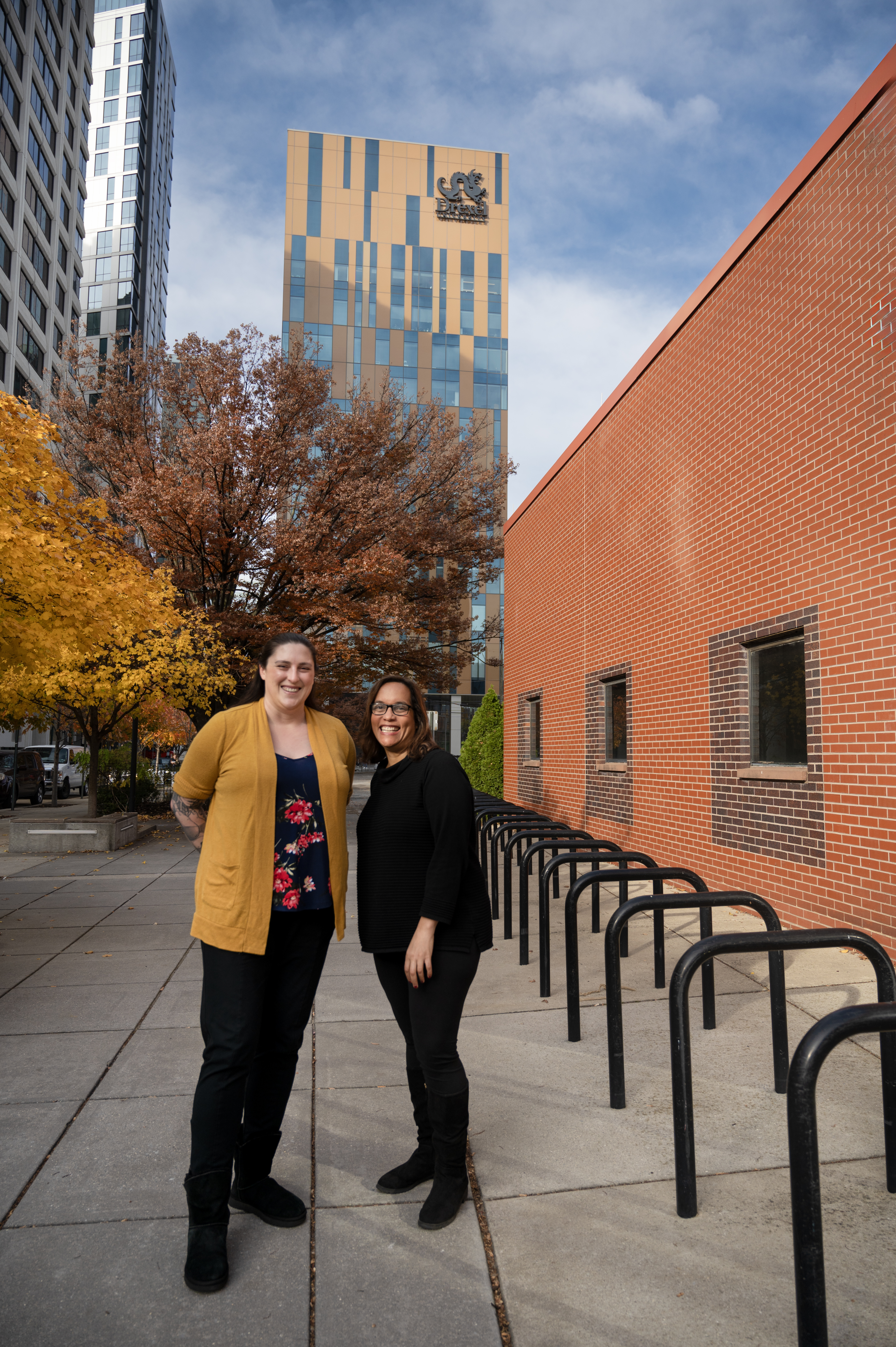Drexel’s Couple and Family Therapy Doctoral Program: Community Engagement and Faculty Mentorship
November 29, 2023
 “I’ve always been interested in how the human mind works and how people make decisions and turn out. It’s fascinating to me,” said Katherine Dilks, PhD, LMFT.
“I’ve always been interested in how the human mind works and how people make decisions and turn out. It’s fascinating to me,” said Katherine Dilks, PhD, LMFT.
In January 2023, Dilks successfully defended her dissertation and earned her PhD from Drexel University’s College of Nursing and Health Professions’ Couple and Family Therapy doctoral program. The program is part of Drexel University’s Counseling and Family Therapy Department—which will mark its 50th anniversary in 2024.
After graduating with a bachelor’s degree in psychology from Muhlenberg College, Dilks earned a Master in Marriage and Family Therapy from Syracuse University. For the next five years, she worked for a nonprofit agency, providing in-home counseling to foster, adoptive and kinship families, and services to New Jersey’s Division of Child Protection and Permanency (DCP&P).
“I wanted to help families and children to function the best that they could,” Dilks said.
Dilks got licensed and considered her next move. She wanted to serve the foster care population through research and enrolled in Drexel’s doctoral program. There, she was paired with faculty mentor Stephanie Krauthamer Ewing, PhD, MPH, an assistant professor in the Department of Counseling and Family Therapy.
“Stephanie’s focus was on attachment, emotions and parenting, which was closely aligned with what I wanted to do—I felt it would be a good fit,” Dilks said, explaining why she requested her mentor.
Dilks entered the program with minimal experience in research, statistics or scientific writing, so having the guidance and support of a mentor was beneficial and reassuring.
“I really appreciated having access to somebody who was so good with that part of the field. I learned a lot from Stephanie just by her asking me to do things and either giving me an example to follow or allowing me the space to figure it out on my own,” Dilks said.
Krauthamer Ewing explained that course work during the first two years is concentrated on teaching students “the nuts and bolts of different types of research methodology,” including statistical analysis and how to develop a project, with practical experience applying what they learn in the lab. She likened the approach to putting up scaffolding, on which the students will build their dissertation work in the following years.
“Drexel really provides you with the opportunity to self-start and to grow as a person and a researcher,” Dilks said. “They give you the structure and education that you need to be able to figure things out and do the work on your own.”
 Dilks focused her dissertation on the parental factors that contribute to permanency in foster care. In other words: which qualities in a foster parent would make them less likely to have a child removed from their home. When kids have multiple foster care placements, it is disruptive to their adjustment and attachment.
Dilks focused her dissertation on the parental factors that contribute to permanency in foster care. In other words: which qualities in a foster parent would make them less likely to have a child removed from their home. When kids have multiple foster care placements, it is disruptive to their adjustment and attachment.
She started her research in spring 2020, surveying foster families from New Jersey and Pennsylvania, and continued collecting data for the next two years. Dilks’ findings confirmed her premise that higher empathic perspective, emotional intelligence and trauma knowledge in foster parents was related to a lower ratio of removal requests.
Krauthamer Ewing said Dilks’ previous involvement with foster families made her passionate about learning more and was beneficial to her work as a researcher.
“When you have a better sense of the needs of the community from community members themselves and you understand their experiences both historical and present, you’re going to build more sensitive research teams, ask better questions and design better methodology,” Krauthamer Ewing said.
Another aspect of Drexel’s doctoral program that appealed to Dilks was being able to engage and build relationships with people in the community. Students were required to provide 15 hours of therapy per week during their first two years.
“We created our own private practice out of a preschool in a higher-need area of Philadelphia, where we offered parents and families easy-to-access, free therapy on site,” she said.
Today, Dilks works in private practice for a group in South Jersey, where she treats patients of all ages, including couples and families. She’s also an adjunct professor at Drexel and keeps in touch with her former mentor.
Dilks' future plans include a full-time academic position, more publishing and working again more directly with the foster community.
“Our faculty and students are really committed to using our clinical knowledge and research skills to answer pressing questions and make a positive difference in the lives of individuals and families,” said Krauthamer Ewing.
Written by: Abby Schwartz